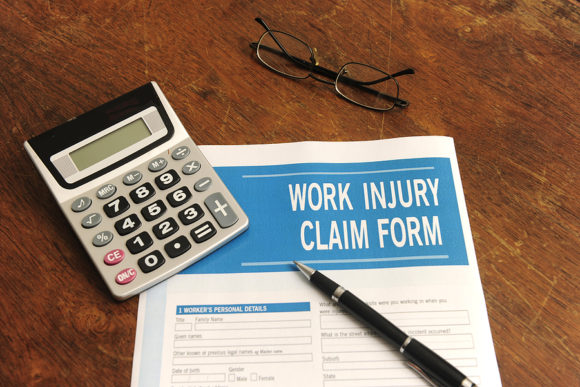Your Right to Receive Medical Treatment When You're Injured at Work
Until it happens to them, most people don't think about seeking medical attention should they sustain a serious workplace injury.
When we have medical issues of our own those of us that are fortunate enough to have private health insurance are accustomed to being able to select our primary physician and also visit specialists that we pick. If we experience poor quality treatment from our doctor, receive rude treatment from the staff or the doctor or staff, we can simply seek out a different doctor to get our treatment.
However, a different set of rules apply when it comes to medical treatment following an injury at work. According to New Jersey Workers' Compensation Law, any worker who is injured in the course of work, regardless of fault, is entitled to all appropriate and necessary medical treatment relating to the accident at work. Every employer in New Jersey is required to carry Workers' Compensation insurance in order to provide this procedure. The insurance company is required to cover 100 percent of the cost for the medical treatment. There is no limit on the amount that is payable. There are no co-pays or deductibles. All associated costs for medical treatment are covered including prescription medications and medical devices. There is no limit on the length of time that the workers' compensation insurer is required to continue providing medical treatment. If your workplace injury requires treatment for five years and care, that's what the company has to offer. workers comp lawyer
So far, so good. However, the issue is that New Jersey's Workers' Compensation Law provides in all cases that the Workers' Compensation carrier has the right to determine the provider of your medical treatment. The victim has no influence regarding the source of their medical treatments. As such, if you sustain a workplace injury, you are obligated to consult the physician recommended by your employer or its workers' compensation insurance company.
What Will Happen If You Have A Work-Related Injury
This is what happens when you suffer an accident on the job. Your employer contacts the workers' compensation company, who directs you to a medical professional. The typical doctor is either the "company doctor", a physician who is under contract with your employer or the insurer, or an occupational medical center that is a clinic establishment that is dependent on referrals from employers and workers' compensation carriers. These medical providers, because the majority or all of their business is obtained from workers' compensation carriers, tend to abide very strictly by the rules and requirements set by the insurance companies. In many situations it is necessary to use a competitive bidding procedure is used to determine which medical providers are selected by the carriers.
Since the patient is not able to go to a provider other than those selected by the employer or carrier, many of the physicians providing treatment to injured workers develop habits of conduct in the way they practice medical practice. Because of the pressure to cut costs doctors are required to take on the most patients daily. The delays and the backlogs of patients waiting to see the doctor are common. Diagnostic tests that a private physician might decide to order without thinking are deferred or just not ordered at all. Referrals to specialists are delayed or not granted. Patients are treated in a rushed way, and have little time to discuss their injuries and their consequences with their doctor.
The injured worker often will have to work with a physician whose attitude toward the injured worker is negative from day one. A lot of doctors, whether through experience or personal philosophy tend to be anti-injured worker mindset. They believe that the employee is exaggerating or feigning their symptoms, or trying to find an excuse to be out of work. If they can come up with a reason to conclude that the employee's health condition is not due to the injuries sustained at work, they are inclined to blame the situation on other factors, like an existing illness. This is the result of pressure from the insurance carriers. If the doctor does not play within the guidelines of the carrier and the patients are directed to another doctor. If a physician is too overly apologist on behalf of his patient and has a heated debate with the insurance adjuster about the best course of treatment and the insurer isn't willing to make use of that physician in the future. workers compensation
What Can You Do If You Are Denied Appropriate Medical Care?
What do you do if the doctor chosen to treat you in connection with your workplace injury isn't treating you in a proper manner? The first reaction of many injured employees who are not in agreement with the appointed physician is to see their own doctor using the health insurance coverage they have with their own. Unfortunately, this can create more problems than they solve. Health insurance policies typically include an obligation that treatment for work-related injuries is not covered. As such, most private health practitioners do not provide treatment for injuries resulting from work. Even if you do get them, the cost of treatment isn't paid for by private health insurance.
Fortunately, New Jersey Workers' Compensation law does provide an avenue to challenge the treatment (or absence of) offered by the doctor who is treating workers' compensation. A person who is injured is entitled to file the Employee's Claim Petition with the Division of Workers' Compensation. The Division has more than 50 Workers' Compensation Judges, with Courts throughout the State, who are appointed to hear disputes involving injured workers. These Judges of Compensation have the authority to require employers' compensation insurance companies to provide proper medical treatment to workers who are being refused treatment.
Do I Need An Attorney If A Dispute Arises About My Medical Care?
Because of the complexities involved in submitting a claim in Workers Compensation Court, it is strongly advised that you hire an attorney in Workers' Compensation to assist you with the process. Since this is a highly particular field, you must choose an attorney who is knowledgeable in this field. The Supreme Court of New Jersey certifies attorneys with expertise in the field of workers legal compensation. Your lawyer will not charge an amount for representing you in a workers' compensation claim until the matter is settled. The Judge of Compensation who decides on your case will determine the attorney's fee once the case is decided, and in no way is it more than 20% of the amount awarded.
What Will Happen Once I've Filed My Workers Comp Claim?
Once your claim has been filed, if there is a dispute about the medical treatment you received and you are unable to resolve it, your Workers' Compensation attorney may file an Motion to Request Medical Treatment, which is given priority by the Court that will usually declare the Motion for hearing within 30 days from the date of the filing. The Judge has the authority to direct the insurance provider to offer medical treatment, provide an evaluation by a specialist, or direct to conduct diagnostic tests. work accident
If you are dissatisfied with your employer, or the workers' compensation insurance company regarding the medical treatment being offered to you, you need to realize that they don't always have the last word regarding your medical treatment. You are entitled to challenge a treatment refusal. You can obtain legal representation without having to incur any costs for the representation. An independent workers' compensation judge will be able to hear your complaint and may instruct the insurance company to give you all the reasonable and necessary treatment that your medical condition requires.
External links:
workers compensation
work accident



Comments
Post a Comment